We"re delighted to announce that this year"s Selwyn Ramsay Murray lecture will be given by Professor David Reynolds, speaking on "History: academic, personal and public".
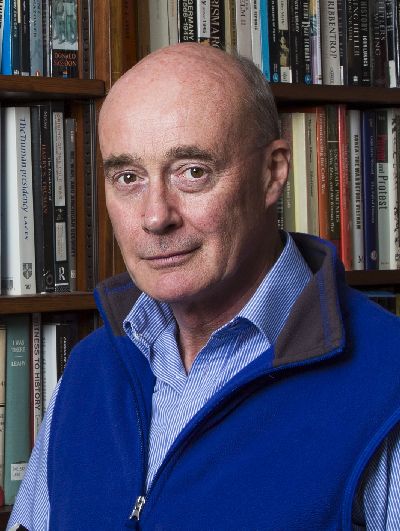
Professor Reynolds will explore some of the achievements of academic history today and also reflect on what can get lost if history becomes too "academic".
David Reynolds is Professor of International History and a Fellow of Christ"s College. He"s the author of eleven books, and over the last few years he has published The Long Shadow (2013) - on the legacies of the Great War for the 20th century - and Transcending the Cold War (2016), a major international study of summitry in the 1970s and 1980s.
He has also written and presented thirteen historical documentaries for BBC TV, ranging across the international history of the 20th century.
The lecture will take place at 5.30pm on Friday May 10th, at The Arthur Goodhart Lecture Theatre, Faculty of Law, Sidgwick Site, Cambridge. No booking required.
If you require any further information, please contact: Christine McDonald, Selwyn College Alumni Office, 01223 335843 or email cmm95@cam.ac.uk.
Edit
Lecture now available as audio, below:
-
-
Selwyn will be running three major summer schools this year for prospective students. We’ll be introducing year 12s to the opportunities of studying medicine at Cambridge; there’s a climate change curation project, also for year 12s; and for year 11s we’re offering a taster for arts and humanities, in which participants will get a chance to make a virtual journey through Italy.
Past summer schools have been much appreciated by the people who took part. Here are some of the testimonials:
“I am very grateful to have been given a place on this summer school. It has been an eye opening, educational and informative experience. I have gained new analysis skills as well as making new friends and I have thoroughly enjoyed it. Thank you!”
“I have had an amazing experience at Selwyn College, and I would love to stay longer or return! I am very grateful to the faculty and student ambassadors for this wonderful chance to experience university life.”
“After being at this summer school I have definitely gained more confidence for my application to university. It has also given me a realistic insight to life at university and course options. I have also been able to meet some incredible people who are inspiring and have helped me throughout the week.”
There’s more information available online http://www.sel.cam.ac.uk/summer-events/ including the selection criteria and details of how to apply. Closing dates are late April/early May.
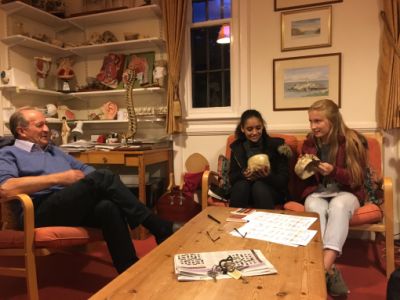
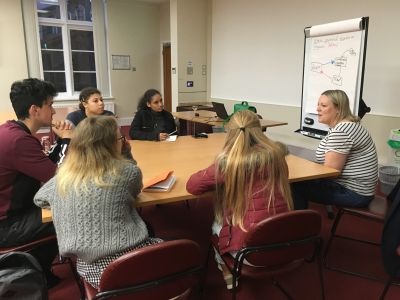
-
The Cambridge colleges and the university recognise that the approach of Britain’s departure from the European Union will prompt questions from students and staff. The university is therefore collating all the latest information on its website, and you can find useful links on this page: https://www.eu.admin.cam.ac.uk/
If any Selwyn member has particular concerns, please get in touch with your tutor or head of department in the usual way. Our priority, of course, is to ensure that things run smoothly whatever the political decisions that are made; and we will therefore share information and update it regularly to keep everyone informed.
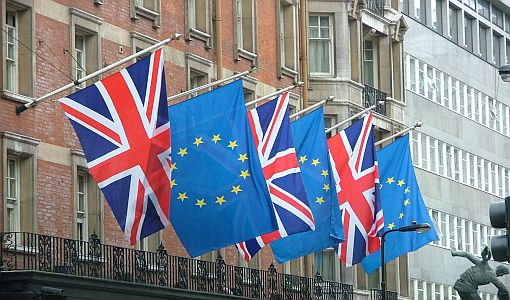
-
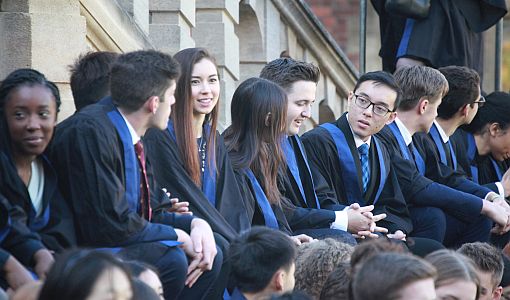
The college has sent out emails and letters with offers to students for admission in autumn 2019. Congratulations to everyone who has secured a provisional place, and we wish you well with your studies in the coming months. We’re sorry that many excellent candidates didn’t receive an offer – but this year was once again highly competitive with a record number of applications.
More widely, the Cambridge admissions process is the subject of much discussion about whether it’s fair to all candidates, irrespective of their background. In particular, there has been controversy about interviews and how much they influence the selections we make. The Master of Selwyn, Roger Mosey, has written a piece for the New Statesman explaining how the process looks from the inside and how the decisions are made. He explains that interviews are only part of a much bigger process; and this college – and the university more widely – rely increasingly on data about prospective students. You can read the piece here:
https://www.newstatesman.com/politics/education/2019/01/here-s-how-cambridge-admissions-process-looks-inside
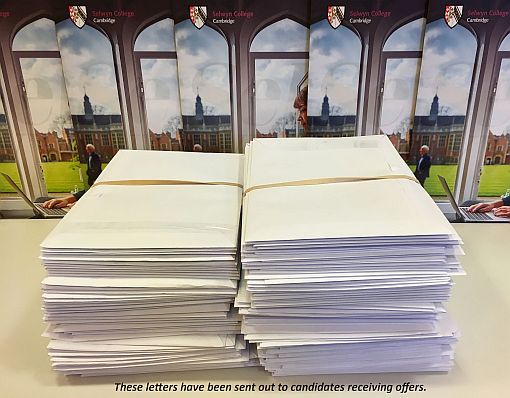
-
Selwyn has a new Dean: Dr Charlotte Summers, who takes up the role this January. Charlotte is one of our Fellows in medicine. She is also a university lecturer, and an honorary consultant in intensive care medicine for the Cambridge University Hospitals NHS Foundation Trust.
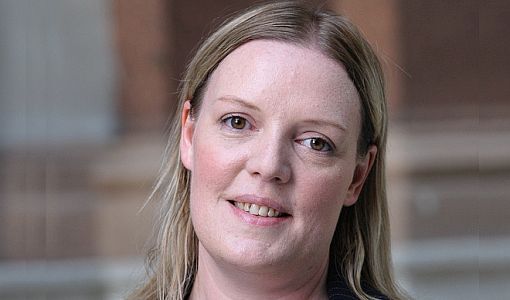
The post of Dean is established in our statutes: “The Dean shall, in conjunction with the Senior Tutor and tutors, be responsible to the governing body for maintaining good discipline and the observance of college regulations on the part of the students of the college.” It’s a key role in the smooth running of the college, and there’s more information about the Dean’s responsibilities in section 6 of our guide for students.
We wish Charlotte well in her new position. -
It is with great sadness that we report the death on January 5th 2019 of Dr Christopher Johnson, Honorary Fellow of the college.
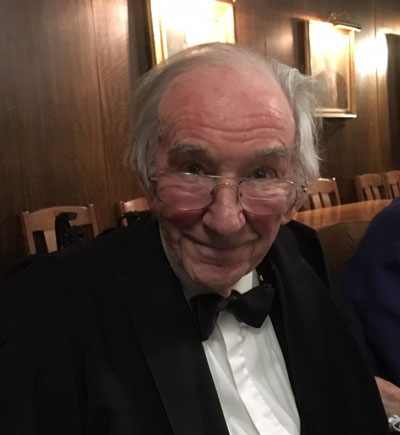
Chris came to the college as an undergraduate in 1950; and, as a talented physicist, he became a Fellow of Selwyn more than 60 years ago. He went on to be a distinguished Bursar here and at St John’s College. It was during his time as Selwyn"s Bursar that Cripps Court was constructed and the larger, modern college became established.
We send our deepest sympathy to his wife June, his family and friends. Dr Christopher Johnson, 1931-2019, RIP. -
Our homepage shows the photograph chosen for the college Christmas card: an aerial shot of Selwyn taken by our recent alumnus Laurence Moscrop, who studied engineering here. The image was captured by Laurence, using a drone, on 26 February 2018.
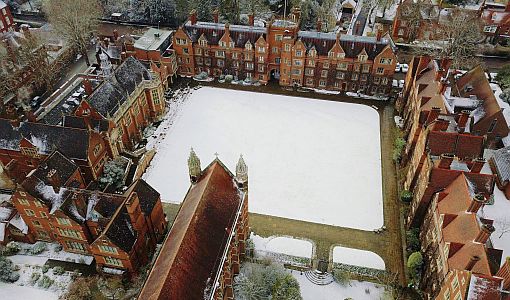
We send season’s greetings to our current students and to alumni, families and friends – with every good wish for 2019. If you’d like some extra festive spirit, you may also enjoy the choir’s Christmas recording which features ‘The Little Road to Bethlehem’.
https://www.youtube.com/watch?v=kh0WkGKexiI
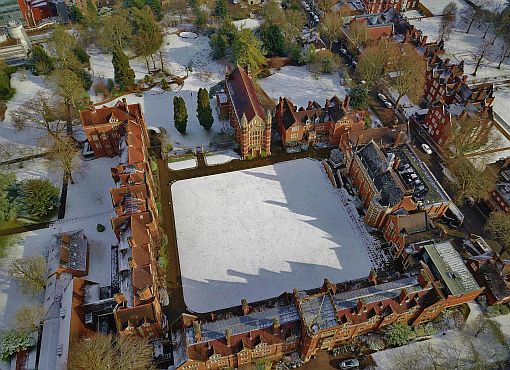
-
The annual Telephone Campaign is underway, with current students calling alumni and friends to update them on recent developments at Selwyn. We’re also grateful for support for the big challenges facing the college: backing students with bursaries and grants; ensuring we have the best teaching; and providing world-class facilities. There’s more about the plans for a new library and auditorium here: https://www.selwynalumni.com/main-website-pages/library-and-auditorium.
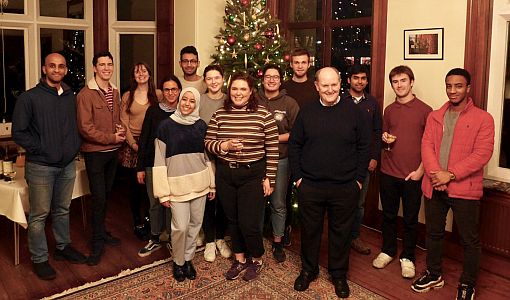
The callers are seen around the Christmas tree in the Master’s Lodge with Roger Mosey. The campaign continues until December 19th, and you can also contact us anytime via development@sel.cam.ac.uk. -
The season for Carols began early this year. The first service in Selwyn’s chapel took place on November 29th; and the Sunday Carol service was actually at the start of Advent.
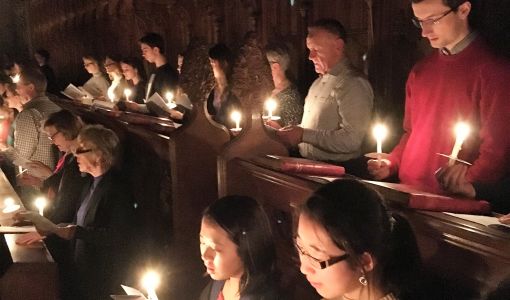 This year’s Carol Service in Selwyn Chapel.
This year’s Carol Service in Selwyn Chapel.
As has become a tradition, the college choir will now head to London for a service for alumni, families and friends at St James’s Church in Piccadilly. It will be on Thursday December 6th at 7pm and all are welcome. This year we’re planning a "massed choir anthem" giving you a wonderful opportunity to sing with the choir. Please note that if you’re interested in joining in, you need to be able to arrive early, at 6.20pm, to take part in a 15 minute rehearsal.
Full details of the event can be found at https://www.selwynalumni.com/carol-service.
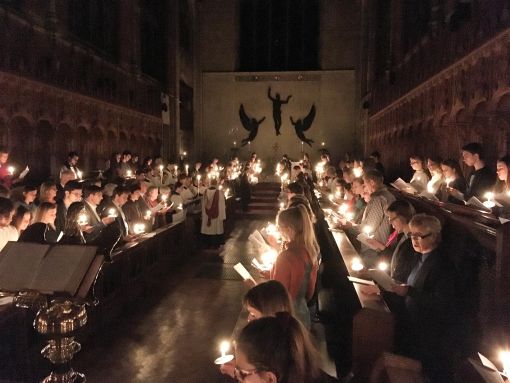
-
Planning is well underway for the start of building work on Selwyn’s new library and auditorium – which will be constructed during 2019 and 2020. The project will create a library fit for the digital age, with a mix of communal and individual spaces for students to work; and the auditorium will be a flexible space with tiered seating for lectures and performances. The site is on the corner of Grange Road and West Road, completing the acclaimed Ann’s Court development.
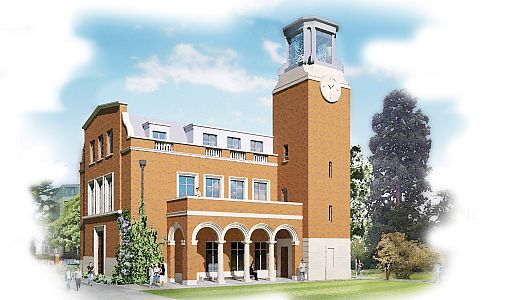
The total cost of the building is expected to be £12.6m, and more than £10m has been raised already. The college is now launching a set of opportunities for alumni and friends to support the project by buying a brick, a chair or a paving stone – with the aim of raising the £2m needed to meet our financial goal.
You can see the plans and make an online donation here:
https://www.selwynalumni.com/main-website-pages/library-and-auditorium
Or for more information, please contact our development team via development@sel.cam.ac.uk or call the Development Office on 01223 767846.

